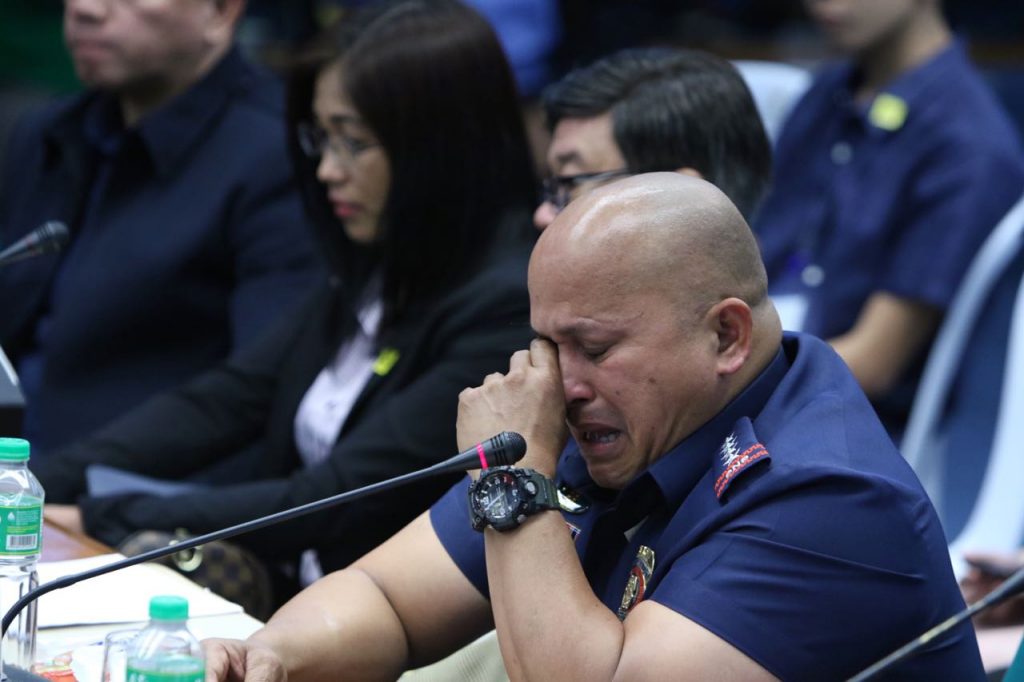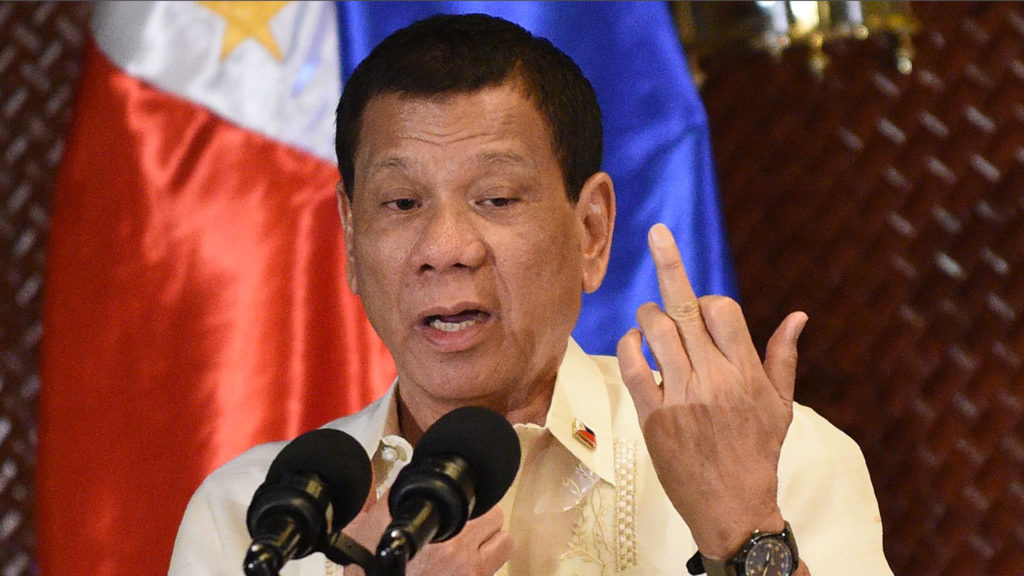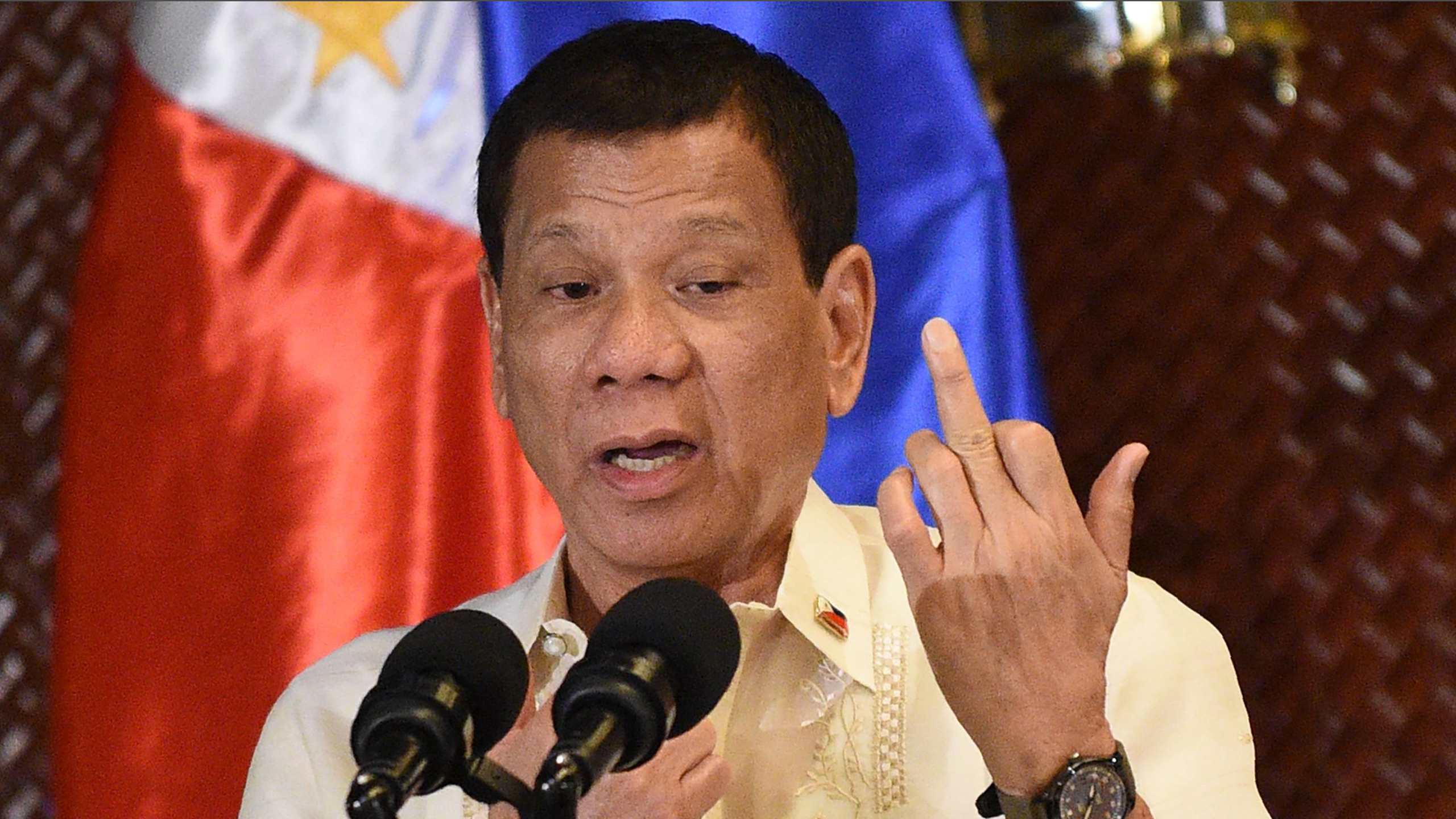After going back and forth countless times, it seems President Rodrigo Duterte has finally decided to revoke the Philippines’ Visiting Forces Agreement (VFA) with the United States.
It can be remembered that he first brought up the idea after his former Police Chief and now Senator Ronald “Bato” dela Rosa had his travel visa to the U.S. cancelled, because of the latter’s involvement with the infamous “war on drugs”. News of the Senator’s visa rejection evidently humiliated the President Duterte, and the cancellation of the military pact between the two countries was aimed as a tit-for-tat response to it.
The VFA is a bilateral agreement signed by the Philippines and the U.S. in 1998 which sets the conditions and guidelines for visiting American forces in the country. It is one of many defense pacts the two countries hold, which includes the Enhanced Defence Cooperation Agreement (EDCA) and the Mutual Defence Treaty (MDT) – the latter binds both military forces to come to each other’s aid in the event of an attack by another country.

This provision in the VFA has led to many progressive groups calling for its nullification in the past, but many also see a benefit in having the agreement in place.
Having such an alliance with a military superpower serves as a powerful weapon in the country’s line of defence, and the prospect of losing this is exactly why multiple government officials and legislators are expressing concern about the President’s planned move. For one, members of the Armed Forces of the Philippines (AFP) have already expressed their disagreement over Duterte’s move.
No less than the Foreign Affairs Secretary Teddy Boy Locsin Jr., himself narrated what the Philippines stands to lose in the event that our alliance with the U.S. is compromised. During a Senate inquiry into the VFA, the diplomat said that the Philippines received $1 billion in military equipment, training and funding from the U.S. between 2016 to 2019.
He succinctly expressed his opinion on the prospect of terminating the military agreement before the Senate’s Committee on Foreign Relations, saying: “While the Philippines has the prerogative to terminate the VFA anytime, the continuance of the Agreement is deemed to be more beneficial to the Philippines compared to any benefits were it to be terminated.”
It should be noted that Sec. Locsin initially supported the President’s plan to cancel the defence agreement, calling it a “good move”. But he has since changed his tone, telling the Senate that terminating the VFA would “negatively impact” the Philippines’ defence and security capabilities.
The Foreign Secretary also revealed to the Senate that the President did not consult either the Department of Foreign Affairs (DFA) nor the Department of National Defence (DND) when the latter announced his plan to cancel the VFA. While the President is the head of the executive, it is imperative to bring on board the feedback of the different government agencies to ensure prudent decision-making.
Locsin’s revelations show that President Duterte acted irresponsibly, making huge decisions in the country’s foreign and defence policies without consulting the Cabinet officials in charge of these respective portfolios. This depicts the Chief Executive’s actions as irresponsible, eschewing his top advisers and instead opted for a knee-jerk reaction.
Though at first it seemed that the intervention of his advisers made President Duterte change his mind. On February 9, the President declared that he would first “study the recommendations of the Senate” with regards to the move rather than an immediate rebuke of the defense treaty.
This would make sense since under the Philippine Constitution, only the Senate has the power to concur and ratify international treaties the country signs on to. In 2017, this was reaffirmed by Senators when they passed a resolution stating that the termination of any international treaty must have the concurrence of the Senate – this should also include the VFA.
It was reported that Senators are reportedly divided on the issue, with even some of the President’s own allies disagreeing with him. One such ally is Senator Manny Pacquiao, who publicly called for a formal review of the VFA himself saying that doing so haphazardly “could have an irreversible implication on the country’s security”.
In the strongest sign of the Senate’s opposition yet, a majority of Senators passed a resolution formally asking President Duterte to reconsider scrapping the VFA. The Senate President himself, Sen. Tito Sotto, also mooted the idea of raising the cancelling of the VFA before the Supreme Court if the former would not reconsider.

It is clear that both the Cabinet and the Senate are both against nullifying the VFA, at least abruptly, but on the 11th of February President Duterte continued to formally terminate the VFA. By doing so, he was not only being flippant to his own Cabinet officials but also disregarded the separation of powers mandated by the Constitution.
Worst of all, his reason for revoking the pact is shallow: to get back at the U.S. for humiliating one of his loyal allies. President Duterte declared that in doing so he also wanted to “defend Philippine sovereignty”, but if that were the case why did he decide to do so only four years after he assumed office?
If the sovereignty of every Filipino citizen indeed plays a factor in this decision of his, why hasn’t he mentioned the rape of a Filipina woman named “Nicole” in 2004 or the rape and murder of Jennifer Laude in 2014, that were both perpetrated by visiting U.S. soldiers who escaped Philippine prison sentence thanks to the VFA? Those injustices would’ve formed a more respectable reason to terminate the pact, but it seems that was at the back of President Duterte’s mind as he merely wanted to shield his own government’s reputation.
There are many good reasons to reject the VFA, but saving face is not one of them. The kerfuffle that wrapped the issue of cancelling the VFA shows that the Duterte administration makes decisions erratically and irresponsibly, simply to protect its own mage.

